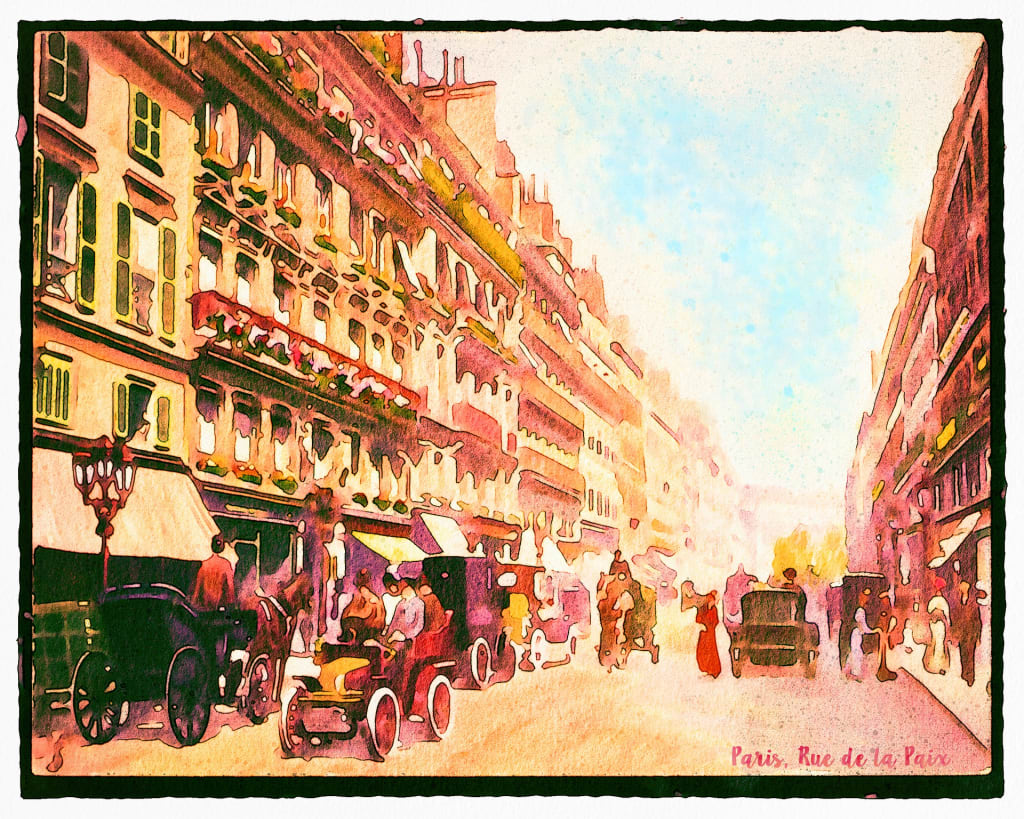The Lost Generation
Part 6: Conclusion, and what to take away and keep in mind for the future. History, after all, does repeat itself.

What can we take away from this decade of bootlegged alcohol and wild dancing? While many writers and artists romanticize this decade, it had daily struggles and problems that we still face today. They worried about work, about politics, the government and who ran it, mob bosses controlling the cops, and much more. However, they knew how to live in the moment. If the First World War taught the younger generation anything, it was to never take anything for granted. So many people died in the war, women in Germany had a one out of three chance of finding a husband. France and Britain took years to recover from the war, while America was the new Industrial Head of the world.
History changed the Lost Generation, the War changed them. This generation gave its all to try and deflect another war, but the victors didn’t take much humility to Versailles when they negotiated a peace treaty. History changed them, but they were determined to not let it control them like that again. Not any time soon anyway.
It can be easy to see why this decade and this generation draw so much attention and inspire films like “Midnight in Paris”. Life seemed to be a never ending party with colorful people from all walks of life gathered in the City of Light. Champagne spilling as people clinked crystal glasses, laughing and dancing to Benny Goodman roar over the radio as men twirled women sparkling in jewels and flapper dresses covered in faceted beads. What a time to be alive where everyone just wanted fun and didn’t have to worry anything other than who would drive them home.
Of course, all that spending and all that partying did help lead to one of the biggest economic depressions of the 20th century. So, if we were going to take something logical away from this Lost Generation it would probably learn how to balance fun with practicality.
However, maybe that’s not the only thing we should take away from them. To have a life and not really spend any time living it, is it really living? Each generation gets tested in their own way, look at the draft for Vietnam or the recent repeal of the Obama Administration healthcare. Every generation has their own fight; it’s the way that generation handles it that defines them. The Lost Generation was called that because their elders thought them to be improper and disrespectful, which could be said of any generation. The Lost Generation made remarkable leaps in their lifetime; they redefined life and changed the rules themselves. The War may have changed them, History changed them, but they didn’t let it control them.
The “Lost Generation” Sources
Halverson, Krista, Jeanette Winterson, and Sylvia Whitman. Shakespeare and Co., Paris: A History of the Rag & Bone Shop . Paris, France: Shakespeare and Co.
Janson, H. W., Penelope J. E. Davies, and Joseph Jacobs. Janson's history of art: the western tradition. Upper Saddle River, NJ: Pearson Prentice Hall, 2007.
Colton, Joel. Twentieth century. Alexandria, VA: Time-Life Books, 1980.
McParland, Robert. Beyond Gatsby: how Fitzgerald, Hemingway, and writers of the 1920s shaped American culture. Lanham: Rowman & Littlefield, 2015.
Mcauliffe, Mary. When Paris Sizzled: the 1920s Paris of Hemingway, Chanel, Cocteau, Cole Porter, Josephine Baker, and Their Friends. Rowman & Littlefield Publishers, Incorporated, 2016.
"Harry Ransom Center The University of Texas at Austin." Harry Ransom Center RSS. Accessed February 10, 2017. http://www.hrc.utexas.edu/educator/modules/teachingthetwenties/theme_viewer.php?theme=big§ion=war&subsect=3
*Thestar.com. "The Hemingway Papers / A Canadian with $1,000 a Year Can Live Very Comfortably and Enjoyably in Paris." The Hemingway Papers / A Canadian with $1,000 a Year Can Live Very Comfortably and Enjoyably in Paris. Accessed February 20, 2017. http://ehto.thestar.com/marks/a-canadian-with-1000-a-year-can-live-very-comfortably-and-enjoyably-in-paris.
*Hemingway, Ernest. "American Bohemians in Paris a Weird Lot." The Toronto Star, March 25, 1922. Accessed February 20, 2017. doi:The Grand Archive.
Lepore, Jill. The secret history of Wonder woman. New York: Vintage, 2015.
*Hemingway, Ernest. "Wild Night Music of Paris Makes Visitor Feel a Man of the World." The Toronto Star Weekly (Toronto, Canada), March 25, 1922.
*Hemingway, Ernest “The Mecca of Fakers” The Toronto Daily Star, March 25th 1922, Accessed February 20, 2017. doi:The Grand Archive.
About the Creator
Mae McCreery
I’m a 29 year old female that is going through a quarter life crisis. When my dream of Journalism was killed, I thought I was over writing forever. Turns out, I still have a lot to say.






Comments
There are no comments for this story
Be the first to respond and start the conversation.